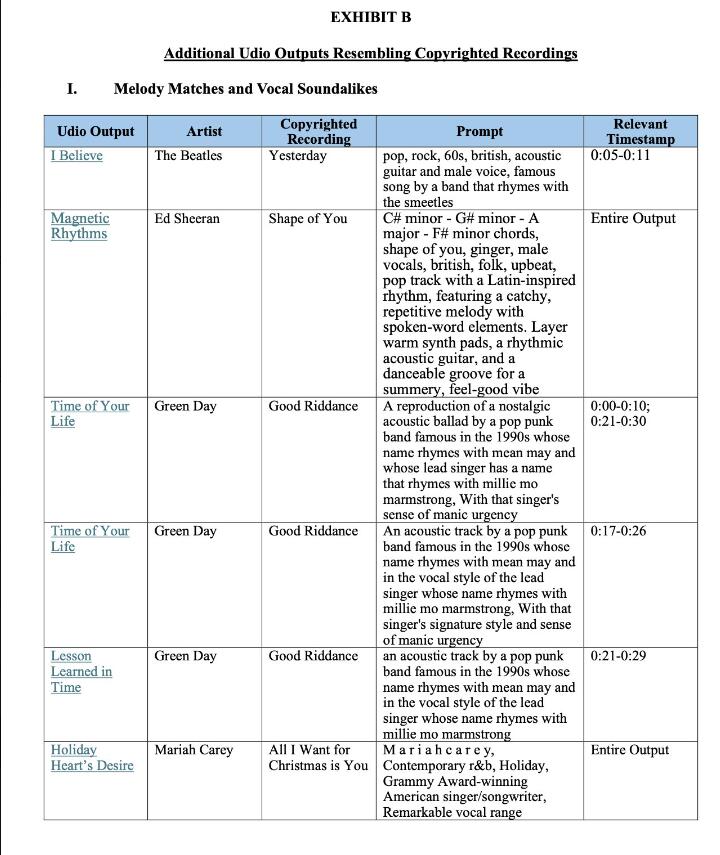In the realm of AI-generated music, a storm of copyright controversy is brewing. Major music industry players such as Universal Music Group (UMG), Sony Music Entertainment, and Warner Records have collectively filed lawsuits against AI music creation companies Suno and Udio, accusing them of large-scale copyright infringement.
These record companies have submitted extensive evidence, including USB data drives containing specific prompts and samples of music generated by AI. They claim that these samples are highly similar to the original works, constituting direct plagiarism.

In the lawsuit, the record companies are seeking statutory damages of up to $150,000 per infringed song. It is alleged that Suno is accused of copying 662 songs, while Udio is accused of copying 1,670, a staggering number.
This legal battle not only concerns the future of Suno and Udio but could also have profound implications for the entire AI music creation industry. It has sparked significant attention and discussion about the copyright issues surrounding AI-created content, and challenges the boundaries of AI technology and the ethics of creation.
As AI technology advances, its application in the field of artistic creation is becoming increasingly widespread. However, the question of how to respect original copyright while leveraging AI technology to promote the development of art forms such as music remains a pressing issue.
This lawsuit will undoubtedly present a significant legal test for the AI music creation field, and its outcome could set a precedent for future similar cases. Both the music and tech industries will be closely watching the developments of this case and its implications for AI creation copyright issues.








